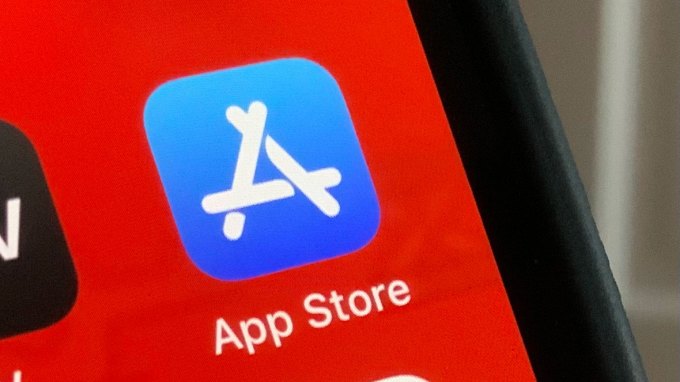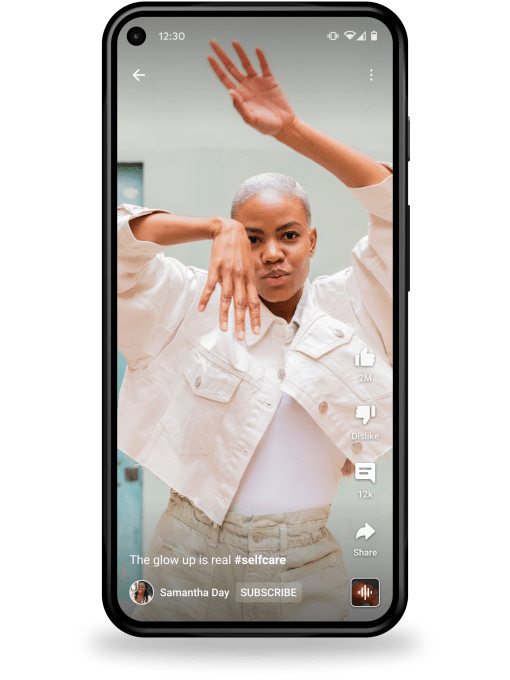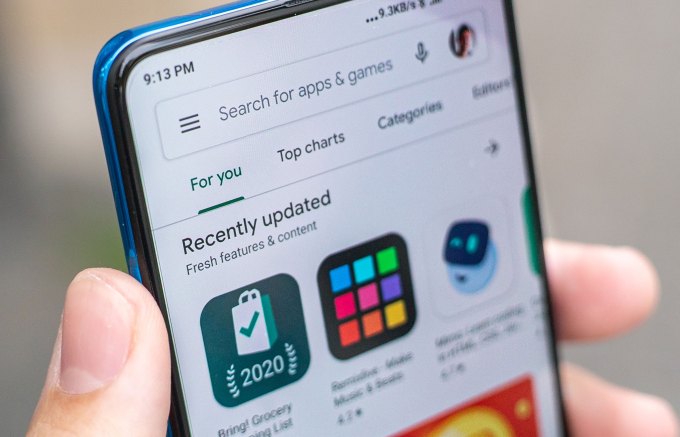Welcome back to This Week in Apps, the weekly TechCrunch series that recaps the latest mobile OS news, mobile applications, and the overall app economy. The app industry is as hot as ever, with 218 billion downloads and $143 billion in global consumer spending in 2020.
The average American watches 3.7 hours of live TV daily but now spends four hours per day on their mobile devices. Consumers last year also spent 3.5 trillion minutes using apps on Android devices alone. And in the U.S., app usage surged ahead of the time spent watching live TV.T
Apps aren’t just a way to pass idle hours — they’re also a big business. In 2019, mobile-first companies had a combined $544 billion valuation, 6.5x higher than those without a mobile focus. In 2020, investors poured $73 billion in capital into mobile companies — a figure up 27% year-over-year.
This week, there was a lot of headline-making app ecosystem news, including Google’s impactful decision to drop its Play Store commissions, an App Store lawsuit over scammy apps with fake ratings, battles over Apple’s App Tracking Transparency, and the arrival of a notable new feature on YouTube — a TikTok rival called Shorts.
This Week in Apps will soon be a newsletter! Sign up here: techcrunch.com/newsletters
Developer sues Apple over lost revenue due to App Store scams.

Kosta Eleftheriou, a co-founder of the Fleksy keyboard app, raised awareness about App Store scams in recent weeks after his app was targeted by copycat subscription scammers leveraging fake ratings and reviewed to gain traction. This week, Eleftheriou filed a lawsuit to hold Apple accountable for his own app’s lost revenue, saying that Apple promises developers a safe and trustworthy marketplace but allows these scammers to operate to the detriment of legitimate users’ apps like his own. Though some news articles positioned the case as an antitrust lawsuit, it’s more focused on scammers and Apple’s accountability for how its App Store operates, which apps are listed, and how well it’s managed and policed. Eleftheriou is asking Apple to compensate him for his lost revenue and other damages due to Apple’s ill-run app marketplace and what he claims are unfair App Review rejections.
Google Play drops commissions to 15% on some earnings.
Google has followed Apple’s lead in reducing commissions for the Google Play store. But in its case, it has dropped commissions from 30% to 15% on developers’ first $1 million in revenue. Apple, by comparison, starts charging 30% once the developer tops $1 million. Google said 99% of developers who sell goods and services through the Play Store would see a 50% reduction in fees. According to App Annie data, very few Google Play developers make more than $1 million — in fact, only 2,035 developers do on Google Play, compared with 3,611 on iOS. To put this in perspective regarding revenue, the firm noted that developers making up to $1 million in consumer spending only comprised 5% of total Google Play consumer pay in 2020.
Apple’s ATT scores a win in France
Apple fended off an attempt by advertisers in France who wanted to derail the IDFA change in iOS, which will require users’ permission to track them. The complaint had attempted to contrast Apple’s ATT (App Tracking Transparency) requirements for third parties with Apple’s own, where its first-party apps are allowed to track by default to personalize ads in various Apple apps. France’s competition regulator decided Apple’s plans “don’t appear to be abusive” and said it couldn’t intervene because some apps may have a negative impact. But the authority did say it would investigate Apple further to determine if any of its changes are “self-preferencing.”
YouTube launches its TikTok rival in the U.S.

The short-form video experience known as YouTube Shorts first launched in India, where TikTok has been banned, in September. It’s now coming to the U.S. in its first significant expansion. S, till in beta, the feature offers a very TikTok-like experience in recording content and viewing. Users can tap to record video segments for up to 60-second long videos and use editing features like text captions, countdown timers, and speed controls. You can double-tap to like, duck into comments, or tap on hashtags or sounds to participate in trends. Meanwhile, viewing the videos is also presented in a TikTok-like format with vertical video feeds.
YouTube believes the feature has potential because it’s connected to the larger YouTube ecosystem, including YouTube Music and the leading platform itself — you can subscribe to YouTube channels right from Shorts, for example. But Shorts lacks much of what makes TikTok successful for the time being, like its numerous AR effects and editing tools, sound sync, and its ability for creators to react and respond to other videos through stitches and duets.

